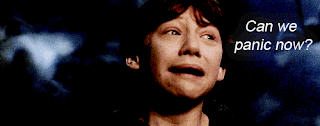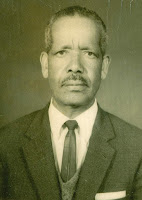Learn about the other Great Minnesota Get together:
Not the State Fair!
Founded in 1635, Boston's Latin School is the oldest public school in the U.S. Five of the 56 signers of the Declaration of Independence graduated from this school: Benjamin Franklin, John Hancock, Robert Treat Paine, Samuel Adams and William Hopper.
Even though Thomas Jefferson was all for free public education, and tried to promote it, only America's wealthy were able to get an elementary school education [until the 1840's]. Then, Horace Mann, Henry Barnard and other reformers tried to get tax-funded schools. These gentlemen thought that if schools were paid for by taxes, more people would attend ... and this would spread education. It [in turn] would help produce better citizens, unite the society, and prevent much crime and poverty. It turns out that in large part [these reformers] were right!
Brooklyn Technical High School - Brooklyn, NY - with a total of 8,076 students is the undisputed heavyweight champ as the largest high school in America! [However,] the world's biggest school is in India, and it has 47,000 pupils, 1,000 classrooms, and 3,800 staff. Dr. Jagdish Gandhi started the school in 1959 with only five pupils. He believed every child has the right to an education. The school receives no government funding; parents are charged a small fee for their children to attend.
In Minnesota, the largest school is Wayzata High in Plymouth with a mere 3,181 students.
Interestingly, high school was not really a part of the school system in the U.S. until the 1930's. Before that, most Americans only completed eight years of school. Why was that and what changed it? Well, during the Great Depression, there were many communities with little work to offer. They figured that keeping teenagers in the classrooms would keep them off the work force, thus reducing the competition for many adults who required higher pay than a teen would. Hence, a little more schooling for the kids!
Didaskaleinophobia is the fear of going to school. Yes, it actually exists, and 2.4% of school-aged children are considered to have it, on an international level. Once you get them there, only 67% of kids like school ... wouldn't it be nice to get that number up a bit!
______________________________
* Source: "Tidbits" [a local trade paper for Champlin, Osseo, Maple Grove, Brooklyn Park, and Crystal ] - Issue 748
Not the State Fair!
Founded in 1635, Boston's Latin School is the oldest public school in the U.S. Five of the 56 signers of the Declaration of Independence graduated from this school: Benjamin Franklin, John Hancock, Robert Treat Paine, Samuel Adams and William Hopper.
Even though Thomas Jefferson was all for free public education, and tried to promote it, only America's wealthy were able to get an elementary school education [until the 1840's]. Then, Horace Mann, Henry Barnard and other reformers tried to get tax-funded schools. These gentlemen thought that if schools were paid for by taxes, more people would attend ... and this would spread education. It [in turn] would help produce better citizens, unite the society, and prevent much crime and poverty. It turns out that in large part [these reformers] were right!
Brooklyn Technical High School - Brooklyn, NY - with a total of 8,076 students is the undisputed heavyweight champ as the largest high school in America! [However,] the world's biggest school is in India, and it has 47,000 pupils, 1,000 classrooms, and 3,800 staff. Dr. Jagdish Gandhi started the school in 1959 with only five pupils. He believed every child has the right to an education. The school receives no government funding; parents are charged a small fee for their children to attend.
In Minnesota, the largest school is Wayzata High in Plymouth with a mere 3,181 students.
Interestingly, high school was not really a part of the school system in the U.S. until the 1930's. Before that, most Americans only completed eight years of school. Why was that and what changed it? Well, during the Great Depression, there were many communities with little work to offer. They figured that keeping teenagers in the classrooms would keep them off the work force, thus reducing the competition for many adults who required higher pay than a teen would. Hence, a little more schooling for the kids!
Didaskaleinophobia is the fear of going to school. Yes, it actually exists, and 2.4% of school-aged children are considered to have it, on an international level. Once you get them there, only 67% of kids like school ... wouldn't it be nice to get that number up a bit!
______________________________
* Source: "Tidbits" [a local trade paper for Champlin, Osseo, Maple Grove, Brooklyn Park, and Crystal ] - Issue 748














